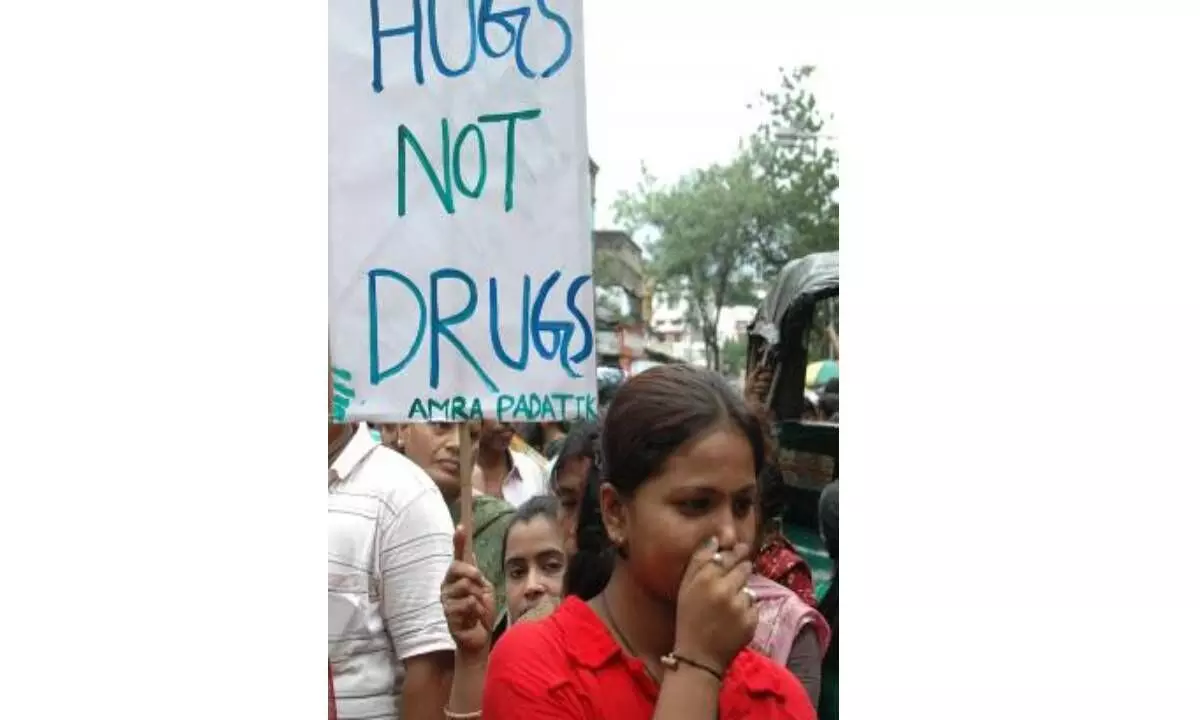Students’ drug abuse problem a wake-up call for education system
Many schools think drug resistance sessions imply students have problems. This is wrong. Schools should have mandatory preventive talks.
image for illustrative purpose

In its ongoing effort to decode the issue of escalating addiction among adolescents and to recommend effective solutions, Think Change Forum (TCF), an independent think tank dedicated to generating new ideas has organised another round of consultation in the backdrop of the International Day Against Drug Abuse and Illicit Trafficking 2023.
The series of consultations are part of a national study initiative, titled "Ideas for an Addiction-Free India," which aims to gather insights from national experts in various fields, including policy, psychology, social sciences and the medical fraternity. In the recent consultation, TCF invited leading educators, psychologists and social scientists to have a focused discussion on how the education system can tackle the issue. The discussions focused on prevention as a key strategy to curtail drug abuse amongst adolescents, aligning with the theme of the International Day Against Drug Abuse and Illicit Trafficking 2023 which also emphasizes strengthening of prevention efforts.
According to a 2019 national survey conducted by the Ministry of Social Justice and Empowerment in collaboration with the Dalian Institute of Medical Science, the prevalence of substance use among adolescents in India is approximately 2 per cent which is quite high in absolute numbers. Notably, inhalants as a category of substance abuse are more prevalent among adolescents compared to adults. In recent times, drug suppliers have been increasingly adopting novel strategies such as vaping to target teenagers and adolescents through new delivery mechanisms and technology-based solutions.
Acknowledging the rising vulnerability of our adolescents and youth to emerging substance use threats, the focus of the current round of the study centered around finding solutions in the education system. The discussion aimed to explore the roles and contributions of different stakeholders in the system, including schools, counsellors and parents in effectively addressing this issue.
Five Key Recommendations
The first recommendation made by the experts is to focus on prevention and proactive discussions in schools to stem the issue. Explaining the need for schools to become proactive, Dr Pallavi Rao Chaturvedi said, “Schools are more than just places of education; it consists of a highly influencing community including peers and teachers in the prime years of the child. It is within the school environment that adolescents start to develop independent relationships outside of their families.”
Highlighting that schools need to be more proactive, Anju Kish said, “A lot of schools hold the misconception that hosting and conducting sessions on drugs or alcohol resistance sends a message that there is already a problem with the students. This perspective is flawed and we need to have mandatory preventive conversations within schools.”
The second recommendation is to effect changes in the school curriculum. Anju Kish said, “In schools, we should definitely have a subject which we can call Coping Skills or Life Skills. Such a subject would help children deal with the various issues that they face including peer pressure and emotional stress. The subject can provide tools that will enable the child to tackle such issues in a healthy manner thereby reducing the likelihood of resorting to drugs or alcohol as a coping mechanism,”
The third recommendation is to institutionalise a structured and robust counselling program across schools.

